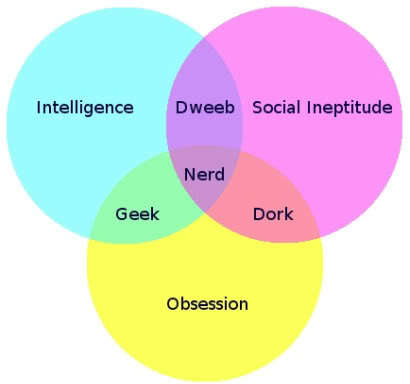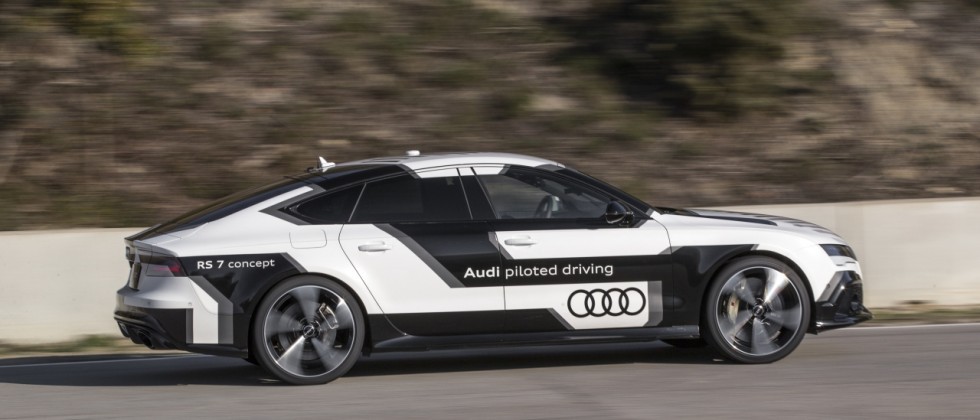The future of motorsports faces great peril
 |
| Look mom! No driver! |
I don't know when it's going to happen.
It could be within the next 10 years.
Maybe 15 years.
For certain within 20 years.
All the experts say that the future of automobiles is all-electric and self-driving. So what becomes of auto racing when cars are silent and driving is no longer a thing people do?
Can you see people sitting in the grandstands watching a race in silence?
I can't.
Can you see people watching race cars navigating around a track with no drivers in them?
I can't.
Autonomous cars can now beat race car drivers
In early 2015 a Stanford University team designed a souped-up Audi TTS dubbed 'Shelley' which was programmed to race on its own at speeds above 120 mph at Thunderhill Raceway Park in Northern California.
When they tested it against David Vodden, the racetrack CEO and amateur touring class champion, Shelley the car was faster by 0.4 of a second per lap.

In the summer of 2015 another autonomous Audi RS 7 lapped California's Sonoma Raceway in 2 minutes, 1 second — a time that Audi says is faster than a human driver managed at the helm of the RS 7.
Audi is developing the sensors, controllers, and software that will be used for autonomous cars. The Audi RS 7 lapped Sonoma without a human driver on board, faithfully hitting the 2.5-mile circuit's corners time after time at speeds of up to 149 mph until it set the best lap time.
"We took the Audi RS 7 piloted driving concept to its physical limits lap after lap, and it handled the task with uniform precision," Audi driver assistance systems manager Thomas Muller said in a statement. "The car turned in lap times that were better than those of sports car drivers."
The shortsightedness of 'relevancy'
[adinserter name="GOOGLE AD"]The mental midgets who run motorsports say they their series must be 'relevant' to the cars on the road. Their race series' has become a way for the manufacturers to develop new technologies and train engineers. Rather than their race series being a sport whereby the best athletes win (like all other sports), they have made their sport an engineering exercise.
And as I have stated on numerous occasions, since engineering is not a sport, neither is their race series'. It is why NASCAR has totally disconnected itself from passenger car technology. Technology is not a big part of the equation in NASCAR. Their cars are as primitive as they come. It all comes down to human beings beating human beings by performing better on the playing field.
What will become of race series that are like whores – artificially propping up their race series with manufacturer R&D money in the name of 'relevancy' to passenger cars when cars powered by silent electric motors and computers are driving them?
These mental midgets, lack the foresight to see they are writing their own death certificate by tying their race series to relevancy to the passenger car industry, and have no clue that the end is near.
It could be 10 years, maybe 15, for certain 20 years. It will be all over – with no athletes (drivers) motorsports will cease to exist as a sport.
There is a solution
 |
| Can a race car driver beat a car driven by a computer programmed by a 'geek' a 'nerd' or a 'dork'? |
I have no doubt that all the above is true. So, it's time for motorsport bosses to plan for the future now to avoid the inevitable death to their series that will follow if they don't.
And while I am sure other ideas will emerge as we put our minds to it, let me throw out one idea as a starting point – man vs. man vs. machine.
What I mean by that is why not plan now to have race cars driven by humans competing against autonomous (driverless) race cars to see who wins?
In other words, can a race car driver beat a car programmed by a smart 'geek', 'dork' or a 'nerd'?
Going back to the Stanford University driverless car project, to get the cars up to speed, the Stanford team have been studying drivers, even attaching electrodes to their heads to monitor brain activity in the hope of learning which neural circuits are working during difficult maneuvers.
And they have used the results to make a car that can drive even better than expert motorists. They predict that within the next 15 years (or sooner), cars which can drive with the skill of Michael Schumacher could be driving children to school.
"We've been trying to develop cars that perform like the very best human drivers," said Professor Chris Gerdes, director of the Revs Program at the Center for Automotive Research at Stanford University.
"Race car drivers are really fantastic at using all the friction between the tire and the road to get around the track.
"Now they are doing that to be fast but the same mathematics holds whether you're a race car driver trying to go around the corner without going off the track or spinning, or whether you're a normal driver going on an icy road where you come in a turn to fast and you want to stay in your lane.
"So by looking at race car drivers we are actually looking at the same mathematical problem that we use for safety on the highways.
"We've got the point of being fairly comparable to an expert driver in terms of our ability to drive around the track."
By studying the brains of drivers when they were negotiating a race-track, the scientists were intrigued to find that during the most complex tasks, the experts used less brain power. They appeared to be acting on instinct and muscle memory rather than using judgement as a computer program would.
"It looks as if the skilled race car drivers are able to control their cars with very little cognitive load," said Prof Gerdes.
[adinserter name="GOOGLE AD"]Mr. Vodden agreed saying in difficult maneuvers experience kicked in. There the old adage – "If you're thinking you're going too slow."
Joe Funke, a PhD student at the Revs Program said they had solved the sliding problem when going around corners at high speed by using data gleaned from the minds of racing drivers.
"We discovered that for the drivers it was an automatic reaction that kicked in as soon as the car started to slide.," he said, "They knew what to do from experience and just did it.
"The car, on the other hand, used a stabilizing algorithm. When we changed it so that it had a set automatic command when it started to slide it definitely seemed to work.
"In the future it could mean we can make driverless cars which drive as well as the best racing drivers. You could have a car with the skill of Michael Schumacher taking your kids to school or the dentist. "
However Prof Gerdes said track tests showed that humans were more likely to break the rules than machines, which could hold important questions for the future of automated cars.
In the race between Shelley and Mr. Vodden, the racing driver left the track at a sharp corner, rejoining the race ahead of the robot car.
"What we're doing as humans we're weighting a number of different things," added Prof Gerdes.
"We're not driving within the lines, we're balancing our desire to follow the law with other things such as our desire for mobility and safety.
"If we really want to get to the point where we can have a car that will drive as well as the very best drivers with the car control skills and also the judgment it seems to me that we really need to have a societal discussion about what are the different priorities we place on mobility and safety on judgement and following the law."
Conclusion
So if my suggestion holds any water, the only way to keep the human element and 'relevancy' to passenger cars as part of the equation in motorsports may be to have race car drivers compete against other race car drivers (as it has always been), but also against the very best 'geeks' and computers the manufacturers can come up with to see who is best.
The one clear advantage the computer driven cars will have – computers don't get tired and dehydrated when the weather is hot. While humans make more mistakes when they become fatigued, the computer will be precise from the start to the end of the race. So the humans driving the cars will have to really be good.
Can you hear the cheer from the blue-collar NASCAR crowd when Matt Kenseth stuffs one of the 'geek' cars in the wall?
Or from the 'nerd' section of the grandstands when the 'geek' car makes a pass for the lead on the final lap?
I can.
After each race maybe the headlines will read 'revenge' of the nerds or take that all you 'dorks'.
Mark Cipolloni is President of AutoRacing1.com
